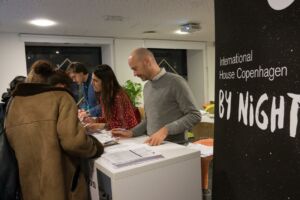News
Denmark and Copenhagen ranking high in Global Talent Competitiveness Index
This article is more than 7 years old.
Capital slips three places, but still makes top five

International House Copenhagen was signaled out for praise
Denmark has been ranked number seven on the 2018 Global Talent Competitiveness Index, an annual list compiled by INSEAD – a rise of one place on last year.
Denmark, along with the other Nordic countries, was commended for its combination of “diversity, talent competitiveness and prosperity”.
Copenhagen loses top ranking
However, Copenhagen has lost its place at the top of the Global Cities list, slipping three places to number four, and it has even lost its status as the top Nordic capital, as it now trails Stockholm (2) and Oslo (3).
READ MORE: Copenhagen tops Global Talent Competitiveness Index
“It’s positive to see that Denmark has improved in many parameters, such as being an attractive talent destination and at retaining talent,” said Linda Duncan Wendelboe, the head of Dansk Industri Global Talent, who urged even more investment in the area.
“Copenhagen has an exciting and budding startup environment, the well-functioning International House Copenhagen for international citizens, and an attractive infrastructure. The city can benefit from this.”
Swiss top both rankings
The number one country is now Switzerland, followed by Singapore, the US, Norway, Sweden, Finland, Denmark, the UK, the Netherlands and Luxembourg.
All five BRICS nations – China (43), Russia (53), South Africa (63), Brazil (73) India (81) – rose in the rankings.
The number one city is now Zurich, followed by Stockholm, Oslo, Copenhagen, Helsinki, Washington DC, Dublin, San Francisco, Paris and Brussels.










































